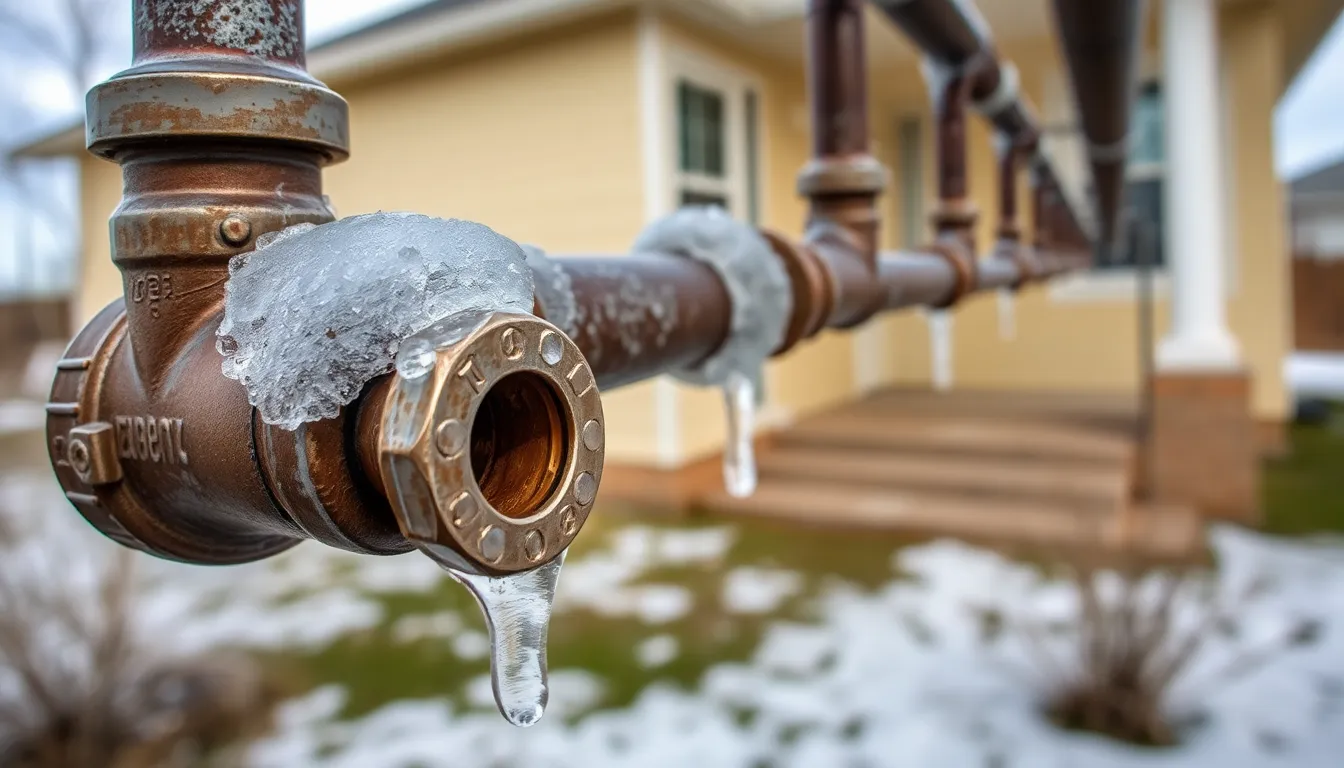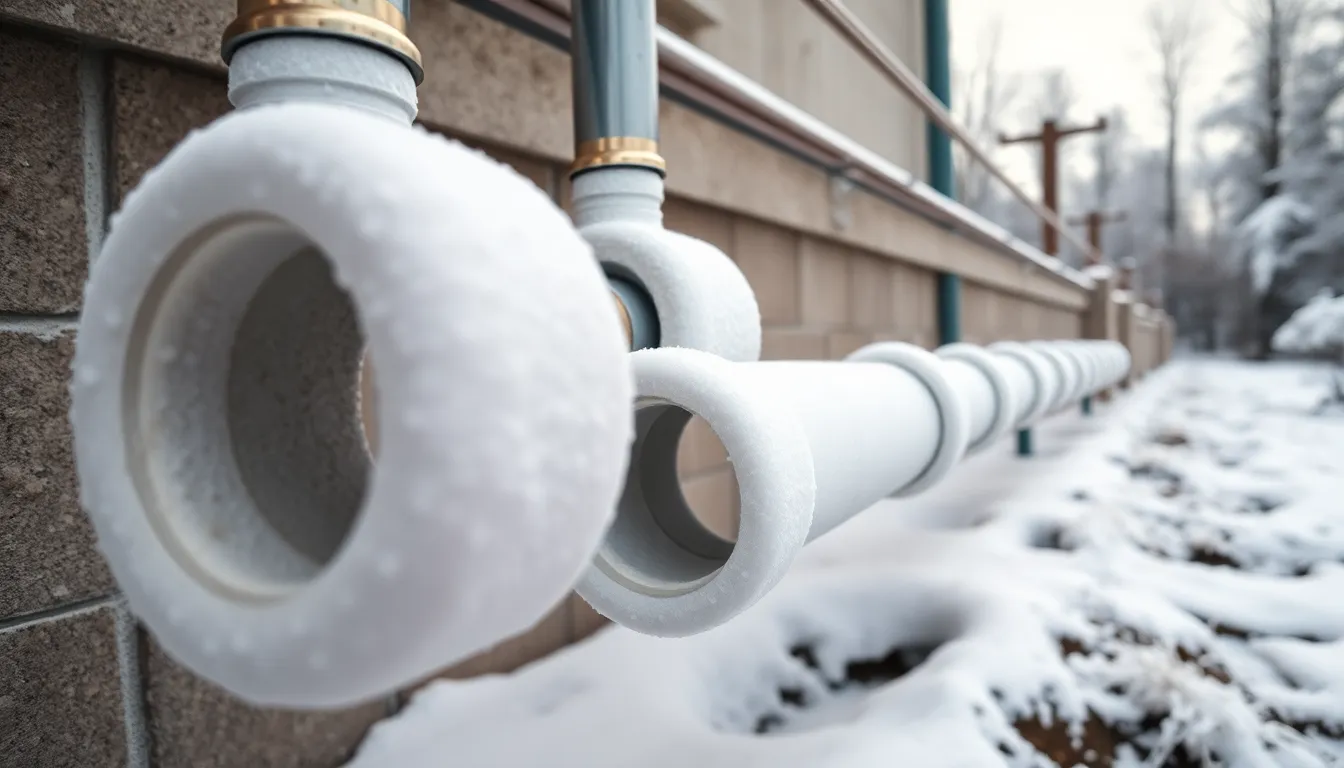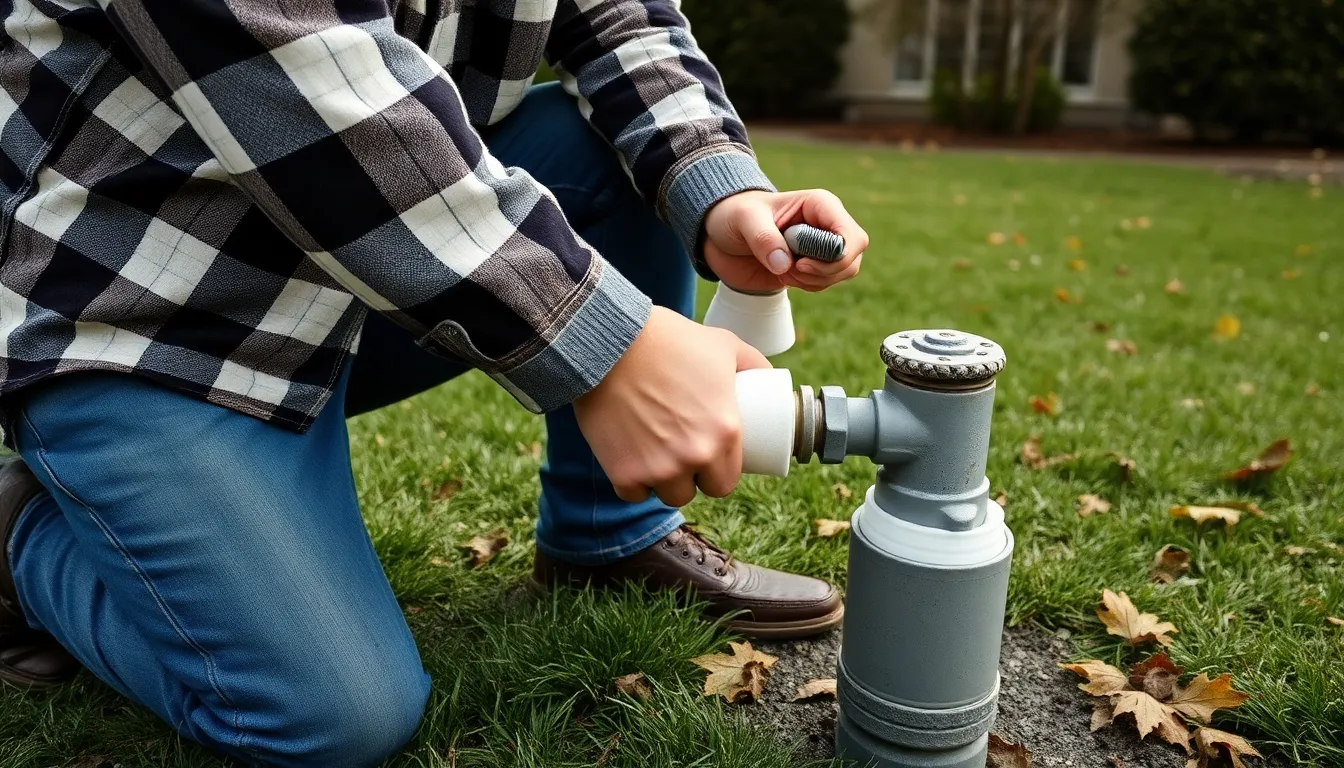As temperatures drop and winter approaches, the unseen vulnerabilities of outdoor plumbing systems come to light. Did you know that nearly 15% of homeowners experience plumbing issues due to freezing conditions? Weatherproofing outdoor plumbing isn’t just a precaution; it’s a necessity for safeguarding your property and avoiding costly repairs.
Imagine the panic of discovering a burst pipe after a chilly night. The sound of rushing water can be a homeowner’s worst nightmare. By taking proactive steps to insulate and protect these systems, you can ensure your plumbing remains functional and efficient, no matter the weather. This article explores essential tips and strategies for weatherproofing outdoor plumbing, offering fresh insights that could save you from future headaches.
Importance Of Weatherproofing Outdoor Plumbing Systems
Weatherproofing outdoor plumbing systems is crucial for preventing damage caused by freezing temperatures. Nearly 15% of homeowners encounter plumbing issues during winter months, often due to unprotected pipes and fixtures. By taking proactive measures to insulate outdoor plumbing, homeowners can avoid costly repairs and minimize the potential for burst pipes.
Weatherproofing preserves the integrity of outdoor plumbing systems, which include hoses, faucets, and irrigation lines. It enhances durability and functionality despite harsh weather conditions. Insulation and proper sealing protect pipes from ice formation, which can lead to increased water pressure and eventual pipe failure.
Investing in weatherproofing measures leads to long-term benefits, including reduced maintenance costs and extended lifespan of plumbing systems. In the Rio Grande Valley, where temperatures fluctuate, effective weatherproofing ensures outdoor plumbing remains dependable year-round.
Common Issues With Outdoor Plumbing

Outdoor plumbing systems face unique challenges. Homeowners in the Rio Grande Valley must be aware of several common issues that can arise, particularly in colder months.
Freezing Temperatures
Freezing temperatures can cause significant problems for outdoor plumbing. When temperatures drop below 32°F, water inside pipes may freeze, expanding and increasing pressure. This pressure can lead to burst pipes, creating costly water damage and requiring extensive repairs. Insulating pipes with foam sleeves or wrapping them with electrical heating tape can prevent freezing. Additionally, draining hoses and outdoor faucets before winter protects them from ice formation.
Water Damage
Water damage is a frequent issue resulting from poorly maintained outdoor plumbing. Leaks from outdoor faucets, irrigation lines, or hose connections can go unnoticed until they cause extensive damage. Water pooling around foundations can lead to structural issues and mold growth. Regularly inspecting outdoor connections and replacing damaged fixtures ensures systems remain functional. Implementing proper drainage systems can further protect properties from water accumulation, reducing the risk of long-term damage.
For expert plumbing solutions that address these issues, contact Integrity Services & Plumbing.
Best Practices For Weatherproofing

Weatherproofing outdoor plumbing systems ensures longevity and functionality. Implementing effective strategies reduces the risk of damage during freezing temperatures.
Insulating Pipes
Insulating pipes is critical for protecting them from freezing. Use foam sleeves to cover exposed sections of piping, ensuring a snug fit. For enhanced protection, apply electrical heating tape along pipes experiencing extreme cold. Focus on areas prone to freezing, such as those near exterior walls or in unheated spaces. Regularly inspect insulation for wear and tear, replacing it as necessary. Insulated pipes maintain consistent temperatures, preventing ice formation and potential ruptures.
Disconnecting Hoses
Disconnecting hoses prevents water from freezing inside them, which can lead to cracks and leaks. Drain all outdoor hoses completely and store them in a dry environment during winter months. Additionally, detach any attached fittings or nozzles to prevent water retention. For irrigation systems, ensure the main water supply is turned off and the lines are drained properly. Taking these steps protects hoses and irrigation lines, preserving their integrity for future use.
Materials Needed For Weatherproofing
Weatherproofing outdoor plumbing requires specific materials that ensure protection against harsh weather conditions. Selecting the right components guarantees the durability and functionality of plumbing systems.
Insulation Materials
- Foam Pipe Insulation: Foam sleeves provide an efficient barrier against temperature fluctuations. These sleeves fit around pipes, reducing heat loss.
- Electrical Heating Tape: This tape wraps around pipes, supplying warmth during freezing temperatures. It activates when temperatures drop, preventing water from freezing inside.
- Fiberglass Insulation: This material works well for larger plumbing systems. It’s ideal for insulating unheated areas, maintaining a consistent temperature around pipes.
Sealants And Covers
- Silicone Sealant: This waterproof sealant fills gaps and cracks around fixtures, preventing water intrusion. Proper application ensures longevity and weather resistance.
- Plastic Faucet Covers: These lightweight covers protect outdoor faucets from freezing temperatures. They are easy to install and remove, allowing for seasonal use.
- Vent Caps: These caps close off unused lines or vents, preventing cold air and moisture from entering the plumbing system. Sealing vent openings contributes to overall system integrity.
Selecting quality materials enhances the protection of outdoor plumbing, minimizing the risks of freezing and damage during winter months.
Conclusion
Weatherproofing outdoor plumbing systems is essential for homeowners looking to avoid costly repairs and maintain the functionality of their plumbing. By taking proactive steps such as insulating pipes and properly draining hoses, they can significantly reduce the risk of burst pipes and leaks during harsh winter months. Investing in quality materials not only enhances the durability of plumbing systems but also ensures long-term savings on maintenance costs. As temperatures fluctuate, the importance of these preventative measures becomes increasingly clear. For those seeking expert guidance and solutions, reaching out to professionals like Integrity Services & Plumbing can provide peace of mind and protection against winter’s challenges.
Frequently Asked Questions
What is weatherproofing for outdoor plumbing systems?
Weatherproofing involves taking preventive measures to insulate and protect outdoor plumbing, such as hoses, faucets, and irrigation lines, from freezing temperatures. This helps prevent costly repairs and potential burst pipes during winter.
Why is weatherproofing necessary for homeowners?
Nearly 15% of homeowners experience plumbing issues due to freezing temperatures. Weatherproofing safeguards plumbing systems, reduces maintenance costs, and extends their lifespan, particularly in areas with temperature fluctuations.
How can I insulate my outdoor plumbing?
You can insulate outdoor plumbing by using foam pipe sleeves and electrical heating tape. These materials help prevent ice formation, which can lead to increased pressure and pipe failure.
What should I do with outdoor hoses before winter?
Before winter, disconnect and drain outdoor hoses to prevent cracks and leaks. Properly draining helps maintain the integrity of your plumbing system during freezing temperatures.
What materials are ideal for weatherproofing?
Effective materials for weatherproofing include foam pipe insulation, electrical heating tape, fiberglass insulation, and sealants like silicone to fill gaps. Plastic faucet covers and vent caps also enhance protection against freezing.
What are the common issues with outdoor plumbing in winter?
Common winter issues include burst pipes due to freezing water, leaks, and water damage. These problems can lead to structural damage and mold growth if not addressed promptly.
How often should I inspect my outdoor plumbing?
It’s advisable to inspect outdoor plumbing systems regularly, especially before winter, to identify potential vulnerabilities and ensure that preventative measures are in place. Regular checks can help avoid costly repairs.
How can I prevent water damage from outdoor plumbing?
To prevent water damage, ensure proper drainage systems are installed, inspect for leaks, and implement weatherproofing measures. Timely maintenance is crucial to avoid long-term structural issues.
What should I do if my pipes freeze?
If your pipes freeze, turn off the water supply immediately and seek to thaw them gradually with warm air. Avoid using direct heat sources, as they can cause pipes to burst. If you’re unsure, contact a plumbing professional.

